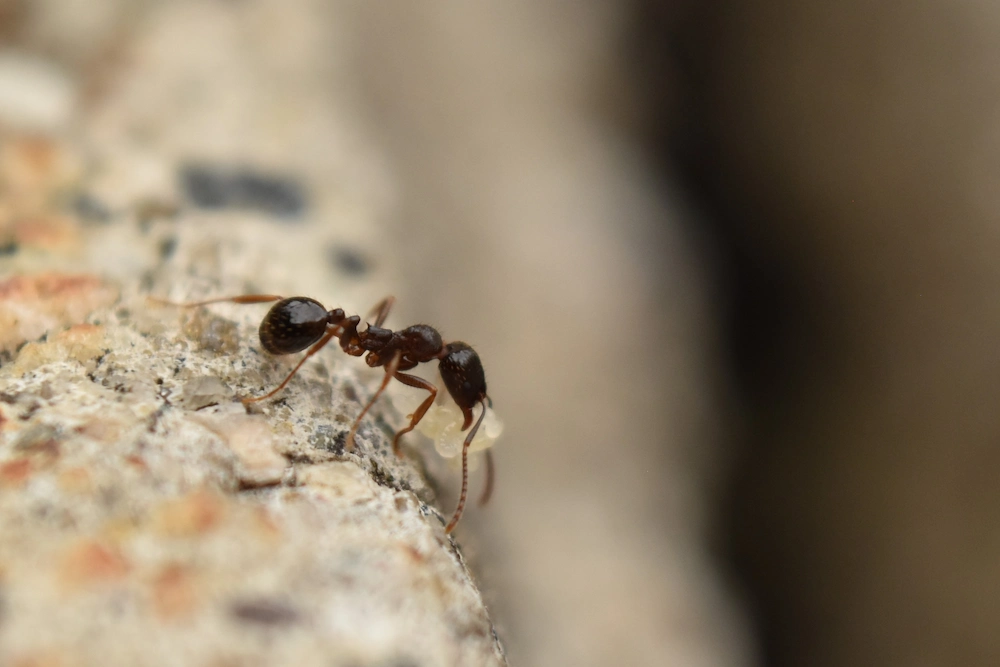Green and Energy-Efficient Pest Control Solutions
Whether it’s your home or business, Pointe Pest Control has you covered with expert pest control solutions. We offer free quotes, consultations, and tailored plans to meet your unique needs. First-time customers can also enjoy an exclusive discount! Take the first step toward a pest-free environment today—schedule your free estimate now.
Pavement Ant Information
The pavement ant is native to Europe and was introduced to the United States in the 1700-1800’s when soil was used in the bottom of the ship to provide a bottom heavy steadiness to the vessel. When the ship docked in the US, the soil was most likely removed and good put in its place. This is how the pavement ant made its way to the United States and it’s been bothering citizens every since.

General Information
Pavement ants are anywhere from 2.5 to 4mm in length, varying in color from dark brown to black. Along their thorax and abdomen are dark furrors or lines, a spiny thorax and their last abdominal segment has a stinger. Though bites and stings from pavement ants are rare, they’re not uncommon. The ant stings can be itchy and aggravating to your skin. Pavement ants typically build their colonies under sidewalk slabs, buildings, homes or rocks. Winged reproductive ants swarm in the spring and the queen then lays her eggs in the soil beneath the ground. These ants love sugar, grease, sticky syrups, nectar, dead insects and even small seeds are consumed and stored in the nest.
The Signs of an Infestation
Pavement ants are a common household pest and often enter through cracks in the foundation. Near the entrance of the foundation, concrete slab or sidewalk, you will find small piles of sand or debris where the ants have pushed back dirt as they excavated the tunnels into their nests. Black swarms of pavement ants on your sidewalk or driveway are an indication that these ants are everywhere and could be a huge problem if they find their way inside. They have an extremely sensitive sense of smell and are drawn into your house by the scent of garbage or food. Once an ant finds crumbs or a readily accessible garbage can, they release a pheromone to their colony that food is nearby and soon you will have thousands of ants arriving to collect the spoils. Anyone who has had an ant infestation knows they don’t just stick to the kitchen, they spread themselves all over the house, going wherever they can find food and water.
Pavement Ants Treatment
Treatment for pavement ants needs to be done carefully. Store bought ant control can be toxic or contain a lot of chemicals that are unsafe if used inappropriately. The average homeowner is not a pest technician so a lacking a thorough knowledge of pesticide application techniques is quite normal. This is why you need the expert approach of the Pointe Pest Control technicians to assist you with the complicated processes of completely removing pavement ants from your house. Our technicians use methods that are safe for your family but effective on ants. They also know how to attack the entire colony without spreading mass hysteria among the colony, causing them to scatter, thus exacerbating the problem. Attempting DIY ant control often prolongs your misery instead of solving the problem. We have been doing this for a long time and know how to completely rid your home of ants. Call us today for the most effective ant control around.
